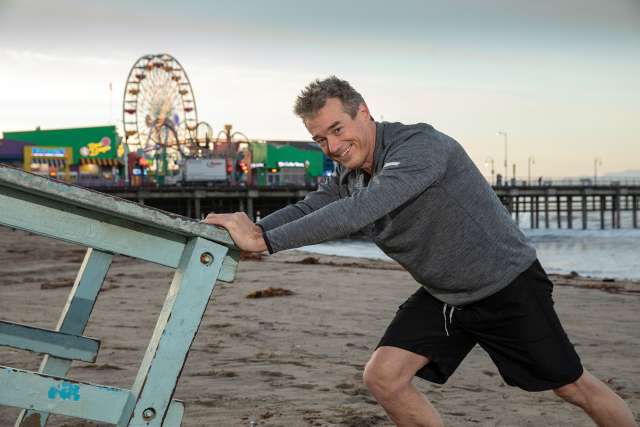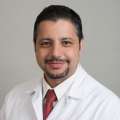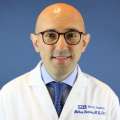On Feb. 22, 2016, Michael Bannon was taking his daily morning bike ride when tragedy struck. Somewhere along his one hour route through Santa Monica, Bannon, now 57, suffered a massive heart attack and was left “dead on the road,” he says.
A passerby found him and started chest compressions; then emergency personnel resuscitated him when they arrived. He was transported to Ronald Reagan UCLA Medical Center, where physicians used hypothermia protocol to place him in a medically induced coma. He woke up three days later, and soon after, underwent a quadruple bypass surgery.
After a successful procedure, performed by , and about 10 days of in-hospital recovery, Bannon was sent home. At a follow-up appointment, cardiologist referred him to outpatient cardiac rehab—an important step in the recovery process that is clinically shown to improve patient outcomes and quality of life.
Bannon was specifically referred to the , which takes place over the course of nine weeks and is held in twice weekly 4-hour sessions. In each meeting, up to 10 participants complete one hour of supervised exercise and another hour of meditation or yoga. They also listen to a nutrition lecture, have a group meal and talk with their peers in a support group. “It is equal parts exercise, nutrition, love and support, and stress management,” says Bannon, noting that he experienced the benefits of the program right away.
Before his heart attack Bannon says he was healthy, but never “peak healthy.” He went on a daily bike ride, but also knew that he had high cholesterol and did little to address it.
After his heart attack, Bannon made the healthy changes he learned in the Ornish program. When he was told that bypass grafts can fail when people resume bad habits, he saw an incentive to stick with the positive changes. “I told him that if he continues his aggressive lifestyle modifications, he can control this, and prevent disease progression,” Dr. Hacobian says.
Today, Bannon eats a plant-based diet, rides his bike every morning and meditates four times per week. In the last three years he has lost 30 pounds, reduced his “bad” LDL cholesterol by 62%, and reduced his total cholesterol more than 50%, from 224 to 105 mg/dL.
While this time has been difficult, Bannon says he is thankful for it all. “I wouldn’t wish this experience on anyone,” he says, “but in the end, my heart attack really improved my life.”
More info: The program, located in 100 Medical Plaza, Suite 440, can help you slow, stop or even reverse the progression of coronary artery disease. Find out more by calling 310-794-1800.
--
This content ran in the Winter 2019 issue of The Checkup, a UCLA Health community newsletter on how to live your healthiest life.





